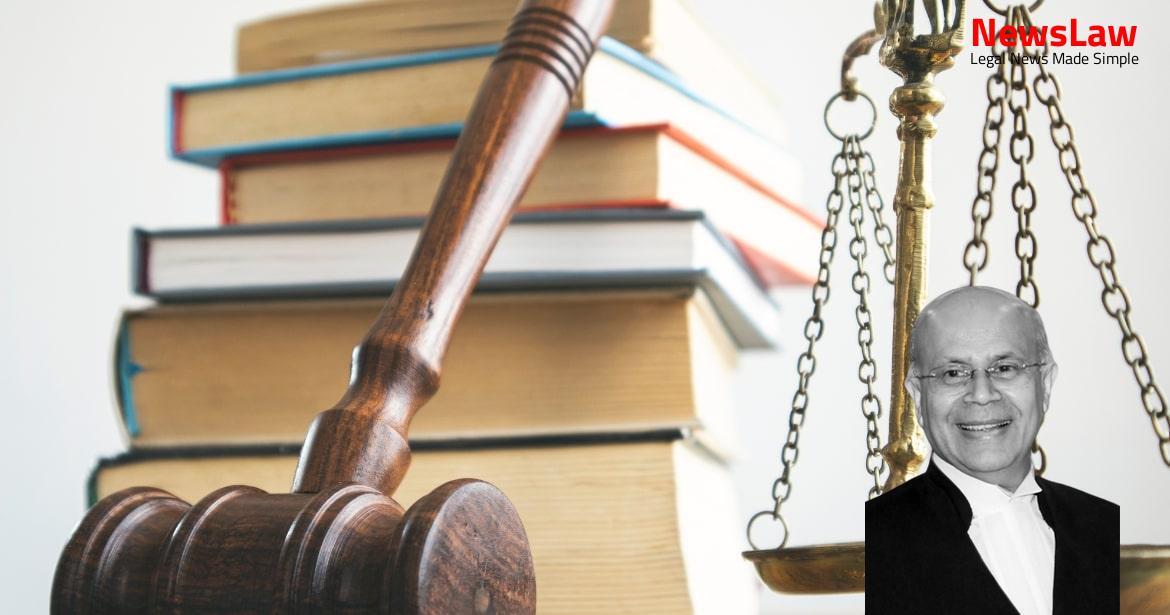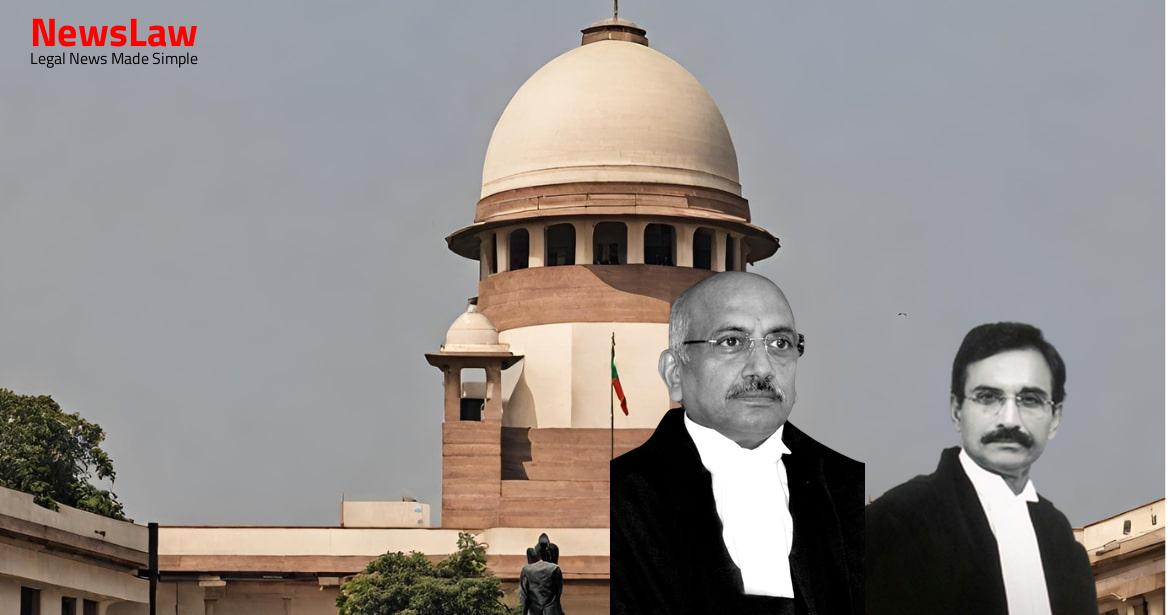Delve into the recent Supreme Court judgement regarding the Maharashtra Prevention of Dangerous Activities Act, 1981. The case involved a detention order issued against a specific individual, raising important questions about the validity and interpretation of such orders. Explore the key findings and analysis provided by the Supreme Court in this landmark decision.
Facts
- The Commissioner of Police, Aurangabad passed an order to detain the respondent as a ‘dangerous person’ under the Maharashtra Prevention of Dangerous Activities Act, 1981.
- The respondent was served with the grounds of detention and the order was approved by the State Government.
- The matter was referred to the Advisory Board, which opined that there was sufficient cause for the preventive detention of the respondent.
- Detaining authority has appealed against High Court’s decision to set aside detention order
- High Court found detention order to be in breach of Section 3 of the Act
- Detention order was initially challenged by the respondent before the High Court
- Detention order was later approved by the State Government
Also Read: Court’s Analysis on Interim Order for Appointing Contractual Employees
Arguments
- Section 3(2) of the Act delegates powers to District Magistrate or Commissioner of Police for detaining a person under Section 3(1) of the Act, not specifying the period of detention in the order.
- Neither Section 3 nor Section 13 of the Act requires the detaining authority to mention the period of detention in the order.
- As per Section 13 of the Act, a person can be detained for a period not exceeding 12 months from the date of detention.
- The High Court did not consider Section 3 of the Act properly in its analysis.
- The detaining authority’s representative argued that the detention order’s setting of 12 months is not against Section 3 of the Act, citing the case of T. Devaki v. Government of Tamil Nadu (1990) 2 SCC 456.
- Learned counsel appearing on behalf of the State heavily relied upon para 10 of the decision in T. Devaki.
- The State’s counsel’s submissions were heard at length.
- Mr. Katneshwarkar supported the State’s submissions.
Also Read: Analysis of Legal Jurisdiction and Fraud Allegations in a Banking Case
Analysis
- High Court’s decision to quash the detention order is not to be interfered with by the Supreme Court under Article 136 of the Constitution.
- Detention order setting a period of 12 months is not in breach of Section 3 of the Act when read with Section 13.
- The High Court misinterpreted Section 3(2) of the Act regarding the period of detention.
- Powers of detention can be delegated to the Jurisdictional District Magistrate or Commissioner of Police as per Section 3(2) of the Act.
- The maximum period of detention under the Act is 12 months from the date of detention as per Section 13.
- The Act does not require the detaining authority to specify the period for detention in the order.
- High Court’s directions regarding legal aid are deemed unwarranted and unnecessary.
- The period mentioned in Section 3(2) of the Act refers to delegation period, not the period of detention.
- Order of detention is not rendered invalid or illegal for not specifying the detention period as per the Act.
- Sub-section (2) of Section 3 relates to the period for which the order of delegation issued by the State Government is to remain in force.
- The delegation of power of detention is entrusted to the State Government to avoid a blanket delegation of power to subordinate authorities for an indefinite period.
- The initial delegation of power of detention by the State Government should not exceed a period of three months and must be specified in the order.
- The State Government may delegate the power of detention again if necessary, but the delegation should not allow for an indefinite period.
- The maximum period of detention under the Act, after confirmation, is twelve months from the date of detention.
- Provisions of the sections are safeguards against delays in considering the representation.
- Non-adherence to the prescribed time frame can lead to the detention order being struck down.
- Detenu is entitled to freedom if the time frame is not adhered to.
- Confirmation of detention order by State Government sets the maximum period of detention for a detenu.
- The detention order mentioning a period of 12 months is contrary to sub-section (2) of Section 3 of the Act.
- The observations made by the High Court in paragraph 33 of the impugned Judgment and Order emphasize the contradiction.
- The directions issued by the High Court in Clauses (VI), (V), and (VI) of the operative portion of the impugned Judgment and Order are quashed and set aside.
- The High Court’s finding setting aside the detention order on the ground of the mentioned period is set aside as well.
- Although the High Court’s decision to quash the detention order is confirmed, the specific finding regarding the mentioned period is overturned.
Also Read: Ramaswami v. Land Owner: Specific Performance Suit
Case Title: THE STATE OF MAHARASHTRA Vs. BALU
Case Number: Crl.A. No.-001681-001681 / 2019



